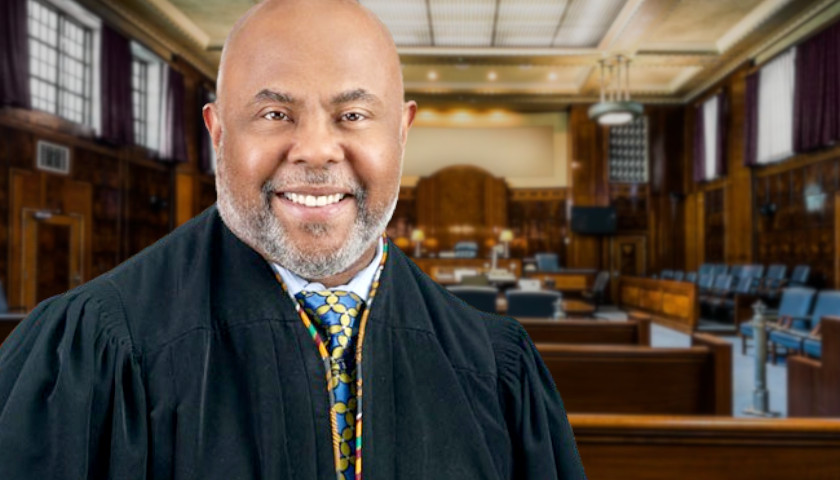State Representative Dave Wright’s (R-Knoxville) version of the bill establishing three-year residency requirements for federal candidates was passed by a key subcommittee.
Before HB2764, the House version of State Senator Frank Niceley (R-Rutledge)’s legislation, was recommended for passage by the House Elections and Campaign Finance Subcommittee, it was amended on Wednesday. The amended version is significantly different than the Senate-passed version as it applies to all federal candidates in primaries and general elections, sets an effective date to one day after this year’s elections, and exempts candidates elected this year from that standard for future elections. The House version is now in conflict with the Senate-passed version.
Wright’s version passed the subcommittee via voice vote and it has now been referred to the full House Local Government Committee.
The new House version reads:
(a) A person is not eligible to qualify as a candidate for United States senator unless the person has been a resident of this state at least three (3) years prior to the date of the election in which the person seeks to qualify as a candidate.
(b) A person is not eligible to qualify as a candidate for member of the United States house of representatives unless the person has been a resident of this state and the district the person seeks to represent for at least three (3) years prior to the date of the election in which the person seeks to qualify as a candidate.
(c) This section does not apply to incumbent members of the United States senate or house of representatives who are elected before the effective date of this act.
The amended legislation sets the effective date for November 9.
This new version sets up a conflict with Niceley’s bill that passed the full Senate with 31-1. Niceley’s bill, if enacted, would take effect immediately and doesn’t exempt incumbents.
Niceley’s SB2616 is simpler than Wright’s new version and only applies to primaries.
In order to qualify as a candidate in a primary election for United States senate or for member of the United States house of representatives, a person shall meet the
residency requirements for state senators and representatives contained in the Tennessee constitution.ns.
The state House will now have a decision to make. The Senate passed SB2616 on February 28 and engrossed it on March 1. It is now ready for transmission to the House. SB2616 is much further ahead in its progress, given it has passed the full Senate, while HB2764 just now passed the subcommittee.
The House could elect to take up the Senate-passed version. It could also let it sit and pass Wright’s HB2764. If Wright’s bill passes in its current form, the bills would then go to a conference committee where differences would be negotiated out. If the conference committee cannot come to an agreement, the legislation would be effectively dead for this year.
Chairman Tim Rudd of the House Elections and Campaign Finance Subcommittee talked about the conference committee process on The Tennessee Star Report with Michael Patrick Leahy. “They’re both equal members. They negotiate.” he said. “You would have Niceley and you’d have Wright. And then the Speaker of the Senate and House would appoint other members to negotiate at the table and then they’d come back. It really gets down to who gives them first, or who has the best constitutional argument in the conference committee.”
Chairman Rudd added, “And they compromise and they come back and see what they can live with.”
If the Senate-passed version prevails, recent Tennessee immigrant Morgan Ortagus would be off the TN-5 GOP primary ballot. California native Robby Starbuck would also likely be off the Republican ballot as well.
Ortagus and Starbuck may very well wind off being off the ballot regardless of General Assembly action because of the TNGOP bylaws.
In the same interview, Rudd told Leahy, “I used to be on the state executive committee and bylaws committee for 18 years before I was a state legislator. And I can tell you right now, based on what members of the party are telling me, Winstead, Baxter Lee, Morgan, and Starbuck, those four do not meet the bona fide status.”
It is unclear what Rudd meant when he was referring to General Kurt Winstead’s status. Winstead’s campaign provided The Tennessee Star with documents that show he voted in three of the past four Republican statewide primaries in Tennessee. Baxter Lee voted in two of the last four Republican statewide primaries and also voted in the 2020 Democrat presidential preference primary.
– – –
Aaron Gulbransen is a reporter at The Tennessee Star and The Star News Network. Email tips to [email protected]. Follow Aaron on GETTR.
Background Photo “Tennessee State House Floor” by Ichabod. CC BY-SA 3.0.








